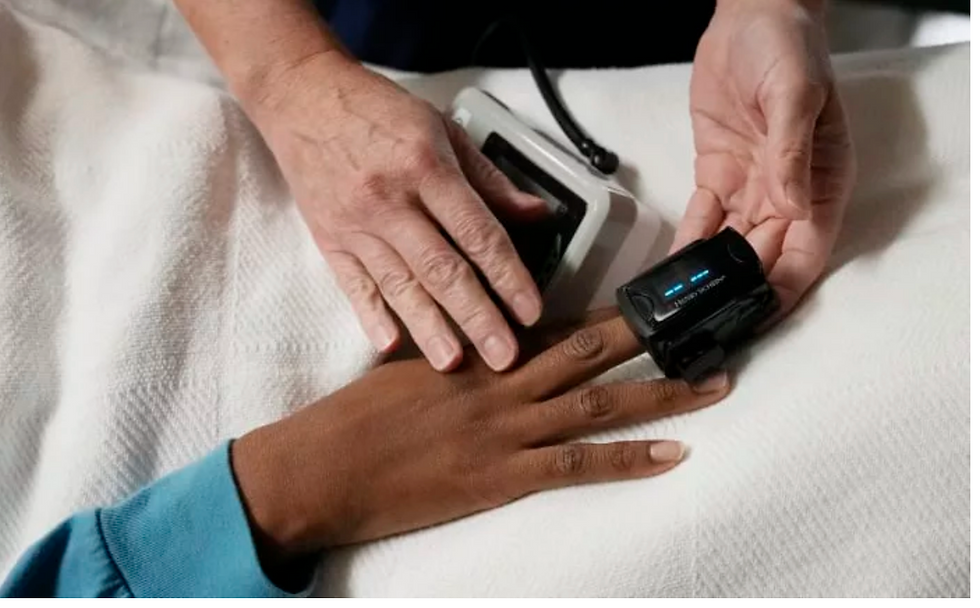Survey Reveals Racial Bias in Healthcare: Patients of Color Suffer Most
- Healthier US

- Dec 8, 2023
- 3 min read
Updated: Dec 9, 2023

TL/DR –
A poll by the health policy research group KFF found that many patients of color take steps to present themselves well when seeing a doctor, in an effort to avoid unfair treatment. 55% of Black respondents felt they needed to be very careful about their appearance to be treated fairly at medical appointments, a rate nearly double that of white respondents. While over 90% of those polled said they were not treated unfairly in a healthcare setting due to their race or ethnic background in the last three years, the anticipation of unequal treatment can influence patients’ interactions with their doctors and potentially lead to disparities in health outcomes.
A Look at Patient Preparation for Doctor’s Visits Amid Racial Discrimination Fears
Doctor’s visits often involve preparation, such as gearing up for exercise recommendations or overcoming needle anxieties. However, for some patients, dressing well – not for comfort, but to avoid discriminatory treatment – has become a regular part of their routine, according to a recent poll by health policy research group KFF.
The survey revealed that many patients of color, including 60% of Black respondents, consciously prepare for their medical appointments to evade possible unfair treatment. Among Black respondents, 55% felt they needed to be cautious about their appearance to ensure fair treatment, nearly double the rate for white patients. Additionally, close to one-third of Black individuals anticipate insults, again twice the rate of their white counterparts.
Christine Wright, a 60-year-old Black respondent, shared how discrimination, including a racial slur from a nurse, has tainted her health care experiences. Despite finding a trusted doctor after a breast cancer diagnosis, she still meticulously prepares for her appointments, weaponizing her appearance against potential biases. “They don’t control you,” she reassures herself. “They don’t.”
While the majority of the surveyed individuals did not report experiencing unfair or disrespectful treatment due to their race or ethnicity in the past three years, the looming threat of such treatment has potential to influence their interactions with health care providers. This is particularly concerning given the existing racial disparities in health outcomes in the U.S., experts suggest.
Dr. Allison Bryant, an obstetrician at Massachusetts General Hospital, said the survey reflects the unfortunate reality for many patients of color. She believes this anticipation of prejudice can impact crucial doctor-patient interactions, which could result in potentially harmful consequences. “There are deep harms that are associated with this,” she stated.
Another participant, Jeymie Luna Roldán, also expressed her struggles with racial disparities in health care. She believes her previous lack of health insurance and imperfect English have contributed to negative experiences during medical appointments.
Despite the high percentage of patients preparing for discriminatory treatment, 93% of those surveyed denied experiencing unfair treatment because of their race or ethnicity in the past three years. However, disparities among racial groups persisted, as Black respondents were six times more likely to report such experiences than white respondents.
In addition to healthcare settings, many respondents reported experiencing discrimination in their daily lives. Such experiences included receiving poor service at stores and restaurants, being threatened, harassed, or treated like they are not smart, or being criticized for speaking a language other than English. Yet, the potential risks in health care settings can be more dangerous, as a dismissive physician not ordering the right tests due to patient profiling can be life-threatening.
Originally appeared in Our Community Media: https://ourcommunitymedia.org/us-news/survey-reveals-racial-bias-in-healthcare-patients-of-color-suffer-most/
.png)


